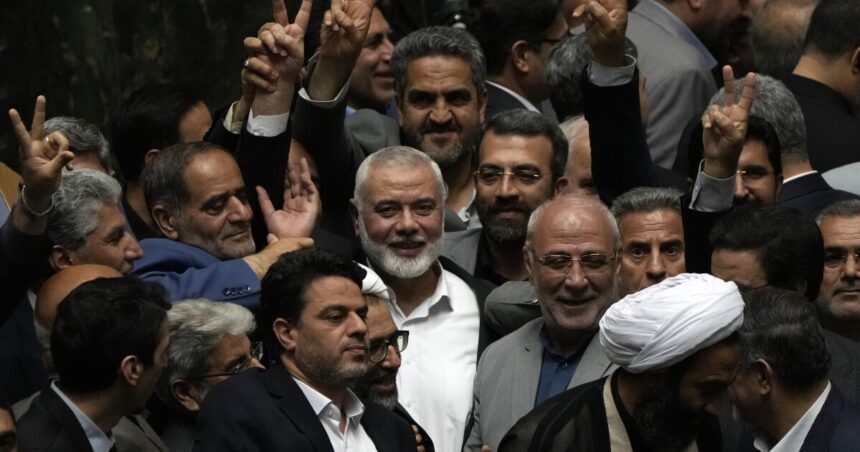Hamas leader Ismail Haniyeh was killed in an airstrike in the early morning hours on Wednesday in Iran’s capital city of Tehran.
Israel is being blamed for the strike — even though there was no immediate comment on the strike from Israel — which has sparked fears of a larger escalation of conflict in the region.
Jamil Jaffer, founder and executive director at the National Security Institute, told Scripps News that Haniyeh was the political leader of Hamas, calling him the “brains behind the operation.”
RELATED STORY | Hamas leader Ismail Haniyeh is killed in Iran by an alleged Israeli strike, threatening escalation
Jaffer said that while there is a different operational leader, Haniyeh was a “very significant figure” influencing strategy and other overarching aspects of operations for Hamas.
Haniyeh lived in Qatar, but was in Tehran attending the inauguration of Iran’s new President Masoud Pezeshkian.
Jaffer said Haniyeh’s visit to Iran was in the capacity of more than just a guest, but as a “sponsored proxy” of Iran, as the country’s government has been accused of providing significant sponsorship and aid to Hamas, including help in conducting the Oct. 7 attack, Jaffer said.
RELATED STORY | Israel carries out rare strike on Beirut that it says killed Hezbollah commander
Observers say there are fears that the shocking assassination, and where it was carried out, have the potential to increase the spread of conflict throughout the region.
Iranian supreme leader Ayatollah Ali Khamenei said Iran considers Haniyeh’s revenge as its “duty,” writing in a statement online that Israel has “prepared a harsh punishment for itself” in the killing of “a dear guest in our home,” according to a report by The Associated Press.
On Tuesday Israel said it carried out a bold and rare airstrike on Beirut killing a top Hezbollah commander who Israel said was behind a rocket attack that killed 12 people in the Israeli-controlled Golan Heights.
At least one woman and two children were killed in the Israeli strike in Lebanon, with at least a dozen others wounded, according to reports.
Jaffer said it’s still unclear if Israel notified U.S. military and government authorities about any planned strikes. He says dozens of rocket strikes over the “last weeks and months” are likely part of why Israel apparently ramped up its recent retaliatory responses.





